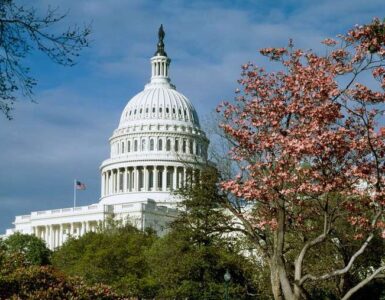The Knowledge Exchange for Resilience at Arizona State University is geared to address long-term stressors that impact Maricopa County, and one of its focal points is heat exposure.
ASU was awarded $15 million by the Virginia G. Piper Charitable Trust to launch the Knowledge Exchange for Resilience (KER).
KER works with the community to address long-term stressors and build community resilience. It will address a variety of issues in Maricopa County and a key topic is the long-term stress of heat exposure.
KER researchers analyzed how people deal with heat with the intent to understand the social networks of the community it works with and reach solutions.
“The university can bring its [effort] to the table which is convening people, pulling together data, creating visualizations. We go back in touch with our community partners and have this dialogue back and forth over what solutions might work,” Dr. Libby Wentz, dean of social sciences at the College of Liberal Arts and Sciences and KER director and principal investigator, said.
The intent is to create a science-to-solutions space that will benefit the community and address the issue at hand.
“We want to look at this from a resilience perspective both in terms of health exposure [such as] heat deaths and heat-related illness as well as economic component,” Dr. Wentz explained.
According to the Maricopa County of Public Health, there were a total of 155 heat-related deaths in Maricopa County in 2017.
The health implications are apparent and even consequential, but the county’s heat exposure also has economic implications.
Dr. Wentz asked, “Are they able to pay summertime utility bills? And, how can we best improve the financial situation so that it becomes less and less of a burden for them?”
KER works with nonprofits and municipalities to learn more about the issues and to help create social cohesion. But, KER is also interested in tapping into another sector to learn more and continue building a resilient community.
“We see a role not just for the nonprofit sector and the municipalities, but the commercial and business side as well,” Dr. Wentz said. “When we think about economic resilience, we could learn a lot from the activity of those groups.”
KER is working under a five-year grant from the Virginia G. Piper Charitable Trust, but it plans to exist at the university for much longer.
Dr. Wentz explained that those involved with the project are pursuing other forms of funding, so they can explore other subjects and conduct research past the five-year mark.
“We want to see this become something that’s institutionalized because we see opportunities for creating improved quality of life across Maricopa County,” Dr. Wentz said. “There’s always going to be work to be done and there’s always going to be solutions created at the university that we want to help foster and facilitate.”















Add comment